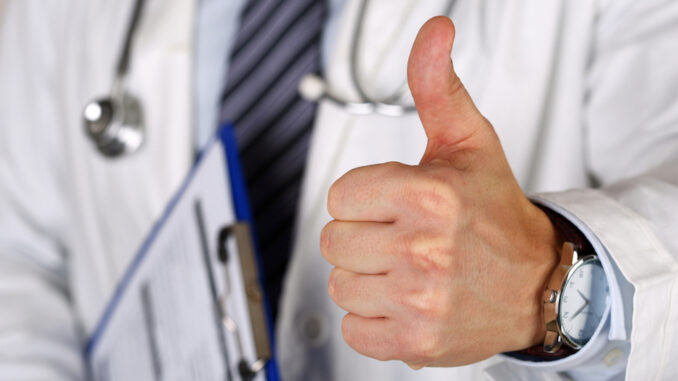
Seres Therapeutics, Inc. (Nasdaq: MCRB) announced confirmatory results from ECOSPOR IV, an open-label study for SER-109, an investigational oral microbiome therapeutic for the prevention of recurrent C. difficile infection (rCDI). The overall safety profile observed in ECOSPOR IV through 24 weeks indicated that SER-109 was well tolerated, consistent with the safety profile observed in the prior placebo-controlled ECOSPOR III study. The ECOSPOR III and ECOSPOR IV studies together conclude the SER-109 Phase 3 development program.
In ECOSPOR IV, subjects treated with SER-109 had a recurrence rate of 8.7% at eight weeks, which indicates a 91.3% sustained clinical response, consistent with the 88% rate observed in the ECOSPOR III study. Subjects with a first recurrence of CDI (29% of subjects in the ECOSPOR IV study) had a CDI recurrence rate of 6.5%, and subjects with ≥ two prior CDI episodes (ECOSPOR III inclusion criteria) had a CDI recurrence rate of 9.7% at eight weeks. At 24 weeks, 13.7% of all subjects treated with SER-109 had a recurrence of CDI. The data from this study help complete the U.S. Food and Drug Administration’s (FDA’s) predefined safety database requirements for SER-109.
“The ECOSPOR IV data confirm the well-tolerated safety profile and clinical benefit observed in the prior ECOSPOR III study,”
said Eric Shaff, President and Chief Executive Officer at Seres.
“These results, along with the start of the rolling BLA submission, significantly advance our ability to deliver what may be the first FDA-approved microbiome therapeutic. We believe that SER-109 has the potential to fundamentally transform the management of rCDI across all 170,000 annual cases in the U.S. and are working closely with Aimmune Therapeutics, a Nestlé Health Science Company, to bring this therapeutic candidate to patients as quickly as possible.”
In addition to data from the SER-109 ECOSPOR III study (NCT03183128), the ECOSPOR IV data will be included as part of the rolling submission of the BLA to the FDA. While the ECOSPOR III data alone will serve as the basis for efficacy in Seres’ BLA submission, the FDA requested safety data from at least 300 subjects treated with SER-109 at the commercial dose as the basis for safety. Safety data across both ECOSPOR IV and ECOSPOR III are expected to fulfill this requirement and complete Seres’ Phase 3 program for SER-109. Seres has initiated the rolling submission of the SER-109 BLA and anticipates completion of the BLA submission by mid-2022. SER-109 has obtained FDA Breakthrough Therapy, which provides the potential for priority review of the application and, as a result, Seres anticipates a potential launch of SER-109 in the first half of 2023.
The open-label ECOSPOR IV (NCT03183141) study consisted of two cohorts of adult subjects with rCDI, providing 24-week data for an additional 263 subjects administered SER-109. The study enrolled subjects with a clinical profile consistent with those commonly evaluated and treated in clinical practice. The overall safety profile through the 24-week follow-up showed that SER-109 was well tolerated, consistent with the safety profile observed in ECOSPOR III. Similarly low recurrence rates were observed in key subpopulations at eight weeks, including subjects with a first recurrence (6.5%), second recurrence (6.1%) and three or more recurrences (13.8%). Furthermore, the study allowed for initial CDI diagnosis to be made with either toxin or PCR, reflecting the variability across local medical practices; on-study recurrences continued to be confirmed by toxin to ensure study data integrity.
“The 91.3% sustained clinical response rate observed at eight weeks in the overall study population with recurrent CDI, including those with first recurrence, reaffirms the superior efficacy and favorable safety profile previously observed in the pivotal placebo-controlled ECOSPOR III trial,”
said Paul Feuerstadt, MD, FACG, AGAF, Yale University School of Medicine and lead author of the New England Journal of Medicine (NEJM) paper.
“As a treating physician, I look forward to the potential approval of this meaningful therapeutic option for patients living with this challenging and debilitating disease.”
Additional Details on the ECOSPOR III and ECOSPOR IV Studies:
- ECOSPOR III (SERES-012): A multicenter, randomized, placebo-controlled study that enrolled 182 adults with rCDI. Results published in the New England Journal of Medicine in January showed that 88% of subjects in the SER-109 group were free from C. difficile recurrence at eight weeks post-treatment, compared to 60% in the placebo group. At six months post-treatment, 79% of the SER-109 group were still free from C. difficile recurrence, compared to 53% in the placebo group, reinforcing the durable relief.
- ECOSPOR IV (SERES-013): An open-label extension study of ECOSPOR III and open-label program for evaluating SER-109 in 263 adult subjects with rCDI at the commercial dose to fulfill FDA requirements for the SER-109 safety database. The study duration for both cohorts was approximately 27 weeks, including a three-week screening period, an eight-week primary efficacy period, and a 16-week follow-up period. Topline results showed favorable safety and 91% sustained clinical response at eight weeks in the overall population. At 24 weeks post-treatment, 86% of subjects treated with SER-109 experienced sustained clinical response. Full results from ECOSPOR IV will be submitted for presentation at a future scientific meeting and publication in a medical journal.
Seres entered into an agreement with Nestlé Health Science in July 2021 to jointly commercialize SER-109 in the U.S. and Canada. Under the terms of the agreement, Nestlé Health Science will use its global pharmaceutical business, Aimmune Therapeutics, and will assume the role of lead commercialization party. Seres has received an upfront license payment of $175 million and will receive an additional $125 million upon FDA approval of SER-109. The agreement also includes sales target milestones which, if achieved, would total up to $225 million. Seres will be responsible for development and pre-commercialization costs in the U.S. Upon commercialization, Seres will be entitled to an amount equal to 50% of the commercial profits.

